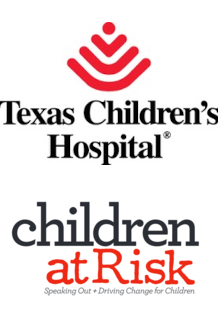Abstract
Despite their standing as one of the most remarkable public health achievements, vaccines have been surrounded by dangerous myths since the development of the smallpox vaccine in the 18th century. In recent decades, with the publication of a fraudulent article linking vaccines to autism, the involvement of celebrities in the debate, and the rise of the internet and social media as sources for information for patients, these myths have become more widespread. This paper reviews four common vaccine myths: vaccines cause autism, vaccines are not safe, too many vaccines are given too soon, and the influenza vaccine is not necessary. For each of these myths, we review the origin and spread of misinformation. The authors then present the scientific evidence against each myth. Extensive research has found no link between vaccines, and particularly the MMR vaccine or the preservative thimerosal, and autism. The U.S. and world health agencies have effective mechanisms in place to review and monitor vaccine safety. These systems have worked to detect and evaluate even rare vaccine adverse events. The recommended vaccine schedule is safe for infants’ immune systems. The flu vaccine is an essential tool in the fight against the seasonal influenza deaths.
A consequence of these myths is that parents are choosing to delay or refuse recommended vaccines for themselves and their children. This has resulted in outbreaks of measles, pertussis, H. influenza type b, varicella, and pneumococcal disease in the United States. Unvaccinated and undervaccinated children risk contracting the disease themselves, and pose a risk to their community as herd immunity decreases. It is important to explore and refute the myths leading to decreased vaccination rates, so health care providers and parents can make educated decisions to protect children and ensure public health.
Key Take Away Points
-
Vaccine myths have circulated for centuries, although they have become more widespread over recent decades.
-
Common myths include: vaccines cause autism, vaccines are not safe, too many vaccines are given too soon, and the influenza vaccine isn’t necessary.
-
Comprehensive, worldwide studies have disproven each of these myths.
-
Vaccines are studied extensively pre and post-licensure to ensure vaccine safety.
-
Despite education regarding these myths, some parents persist in believing these myths and may choose to delay or avoid some or all vaccines.
-
Under and unvaccinated children are at increased personal risk for vaccine-preventable diseases; they also represent a risk to the community.
-
Education of parents is essential for eliminating belief in vaccine myths.
Author Biography
Lindy McGee, MD is a general pediatrician who practices in Pasadena, TX. She is faculty at Baylor College of Medicine and spends her clinical time teaching residents at a Harris Health clinic in an underserved area. Dr. McGee is also a member of the Academic General Pediatrics department at Texas Children’s Hospital, where her research focuses on increasing rates of HPV vaccination in the Harris Health system. Through her work with the nonprofit, The Immunization Partnership, she has become a strong advocate for vaccination, doing everything from hosting parent groups to testifying at the state legislature. Dr. Julie Boom graduated with highest honors with a B.S. in Biology/Biological Studies from the University of Texas at Austin and completed her medical education at Baylor College of Medicine. Julie completed her internship and residency in pediatrics at Boston Children’s Hospital. Dr. Boom is an Associate Professor of Pediatrics at Baylor College of Medicine and Director of the Immunization Project at Texas Children's Hospital. She has led multiple immunization education programs and CDC-funded vaccine research initiatives. Dr. Boom co-authored the booklets, “Vaccine Preventable Disease: The Forgotten Story” and “Vaccine Preventable Disease: Human Papillomavirus.” To date, over 150,000 copies have been distributed. Julie is the mother of three children, ranging from 22 years to 12 years. Rachel M. Cunningham, MPH, earned her Bachelor of Science degree from Oral Roberts University and has a master’s in public health from the University of Texas Health Science Center at Houston. Ms. Cunningham is the immunization registry and educational specialist at Texas Children’s Hospital. She has been at Texas Children’s since 2007. Ms. Cunningham is the primary author of Vaccine-Preventable Disease: The Forgotten Story of which more than 150,000 copies have been distributed. She also frequently serves as a contributor to the Texas Children’s Hospital blog. Most recently, she has led projects examining the prevalence of vaccine concerns among the Texas Children’s Pediatrics and Texas Children’s Pavilion for Women patient population. Rachel is the mother of three children, ages 1, 5, and 7.
Recommended Citation
Boom, Julie A.; Cunningham, Rachel M.; and McGee, Lindy U.
(2018)
"Vaccine Myths: Setting the Record Straight,"
Journal of Family Strengths: Vol. 18:
Iss.
1, Article 13.
DOI: https://doi.org/10.58464/2168-670X.1375
Available at:
https://digitalcommons.library.tmc.edu/jfs/vol18/iss1/13


